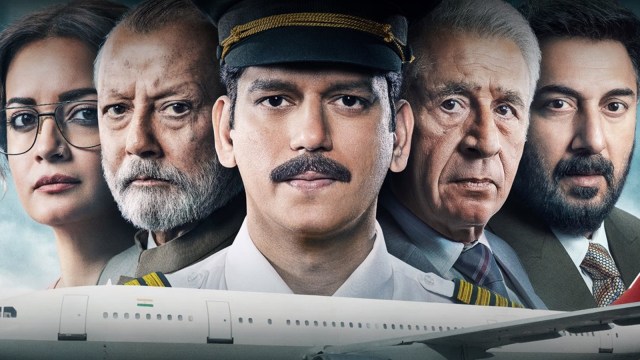OTT rules come into focus after outrage over IC 814: The Kandahar Hijack
8:33 AM
Posted by Fenil Seta

Javed Farooqui (THE ECONOMIC TIMES; September 17, 2024)
The controversy over Netflix’s ‘IC 814: The Kandahar Hijack’ series has reignited the debate over having tighter content regulation for over-the-top (OTT) platforms in the Ministry of Information and Broadcasting (MIB), people privy to the development told ET.
The series, based on the hijack of an Indian Airlines flight in 1999, faced social media outrage for inaccuracies including changing the names of the hijackers.
Netflix India agreed to include an updated disclaimer on the real and code names of the hijackers, Ibrahim Akhtar, Shahid Akhtar Sayeed, Sunny Ahmed Qazi, Zahoor Mistry and Shakir.
The key concern that the MIB has about the web series is that it claims to be a work of fiction while promoting it as a true story, people cited above said. Further, the platform has put up a disclaimer only in India and not in other international territories.
“If foreign streaming platforms continue to behave like this, the MIB will be compelled to come out with a tighter content regulation for OTT platforms, which could extend to pre-certification of content also,” a government official said on condition of anonymity.
Both the MIB and Netflix declined to comment.
OTT insiders expressed concern over tighter content regulation.
“This reaction can have a chilling effect on the industry… (It is) likely to curtail free speech and the ability for anyone to tell a story of any authenticity,” said an OTT expert who requested not to be identified.
Legal experts argued that the issue over the names of characters is specific to India and hence the updated disclaimer is only applicable there.
A petition seeking withdrawal of the series was also filed in the Delhi High Court for assigning Hindu names such as Bhola and Shankar to the hijackers. The petition was withdrawn later.
Unlike TV broadcasting, which has to adhere to program code under the Cable Television Networks Regulation Act 1995, there is no content regulation for OTT.
The government was planning to bring OTT under the regulatory framework through the Broadcast Bill, which has been put on the backburner following opposition from media organizations and independent content creators.
Currently, the OTT platforms have to follow a three-tier grievance redressal mechanism under the IT Rules 2021. The three-tier mechanism includes self-regulation by publishers, publishers having a self-regulatory body, and oversight mechanism by the government.
In the case of IC-814, the MIB acted with restraint despite mounting public pressure, the official quoted above said. “The government could have asked Netflix to either edit the show or take down the content under Section 69 of the IT Act. However, it didn’t take any adverse steps,” the official said.
In the past, the ministry has received complaints from social and religious organizations against multiple OTT shows including Grahan (Disney+ Hotstar), Bombay Begums (Netflix), and Tandav (Amazon Prime Video).
In some cases, the streaming platforms had agreed to remove scenes that were deemed controversial. Tandav is a case in point.
Experts said the IC-814 controversy underscores the challenge of balancing creative freedom and responsible content creation on OTT platforms in India.
This entry was posted on October 4, 2009 at 12:14 pm, and is filed under
Bollywood News,
I&B Ministry,
IC 814: The Kandahar Hijack,
Netflix,
Tandav
. Follow any responses to this post through RSS. You can leave a response, or trackback from your own site.
Subscribe to:
Post Comments (Atom)
Post a Comment